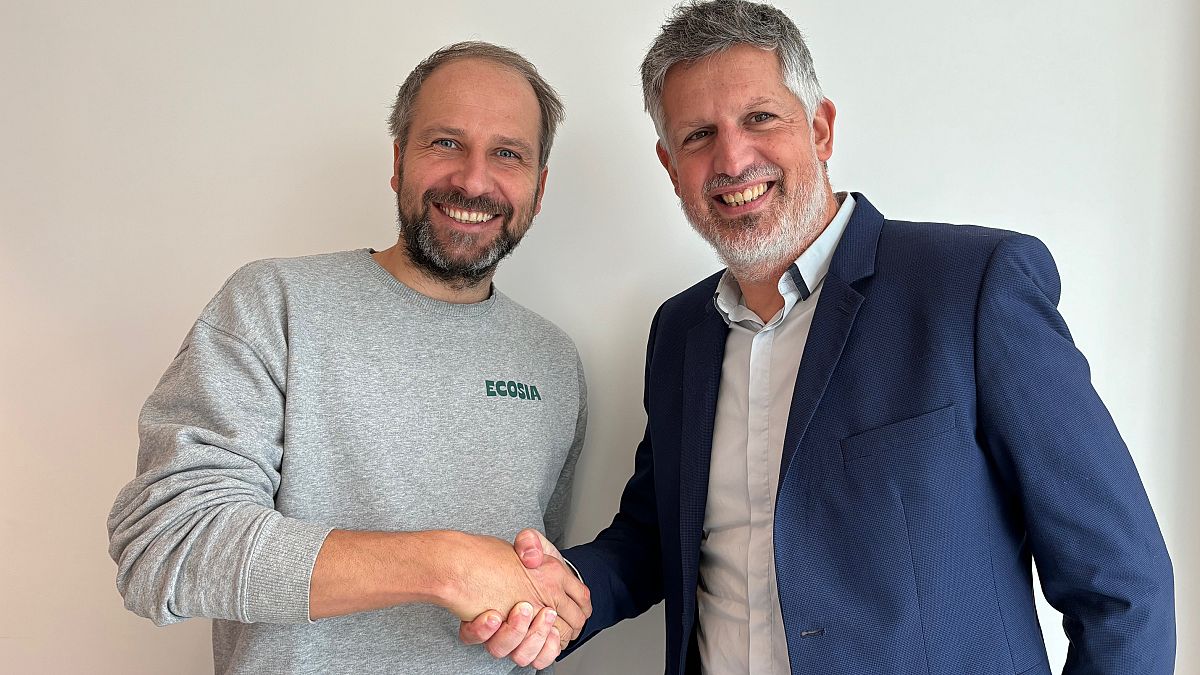According to European Search Engines news, Ecosia and Qwant, two independent search engines are partnering to create a unified search index aimed at reducing reliance on companies like Google and Microsoft. This joint venture is called the European Search Perspective (EUSP).

Also Read: Latest Nikon News: Nikon Z50 II Officially Announced
European Search Perspective is expected to launch in France in early 2025. The initiative will create a European search index specifically tailored for French and German language searches.
This new search engine infrastructure is being described as privacy-first and is developed as an alternative to existing global search engine platforms.
By building an independent search index, European Search Perspective plans to empower European tech firms and minimize dependence on non-European companies for search engine technology.
Ecosia and Qwant’s reliance on American companies like Microsoft and Google has been costly particularly given recent price hikes from Microsoft for access to its Bing search API.
European search engines news highlights how this partnership is driven by a need for digital independence, allowing companies to control their costs and tackle risks associated with external decision-making.
The Digital Markets Act supports fair competition and requires Big Tech firms deemed gatekeepers to offer reasonable access to their platforms and data.
Under DMA rules, companies like Google and Microsoft must share valuable data that would help build alternative search models, which is advantageous for Ecosia and Qwant as they work to develop the EUSP search index.
According to European Search Engines news, Microsoft’s increased fees for Bing’s search APIs. Currently, Qwant relies heavily on Bing, while Ecosia combines Bing with Google’s search results to deliver its outcomes.
The new venture, European Search Perspective (EUSP) is a 50-50 joint ownership between Qwant and Ecosia, headquartered in Paris.
The purpose of European Search Perspective is to create a fully independent, privacy-first search index that serves as an alternative to Microsoft and Google.
To reduce dependency on US-based search companies and fuel Europe’s digital sovereignty by providing a sustainable alternative.
This initiative aligns with European regulatory support especially under the Digital Markets Act, which mandates data sharing to encourage competition and innovation within the European tech sector.
European search engines news from Ecosia and Qwant states their goal of serving France-based search traffic by early 2025, followed by a planned expansion to Germany later in the year.
English will be the third language supported, with additional languages being added if the initiative gains traction.
The DMA requires these companies to share click and query data with smaller search engines to enhance competition and break monopolistic hold in sectors like search, social media and e-commerce.
European search engines news shows how such policies make it feasible for independent companies to compete with companies by leveling the playing field.
The DMA regulations enable Qwant and Ecosia to access data for building and enhancing their search index.
By lowering dependency on Bing and Google APIs, both companies expect to reduce operational expenses over time.
According to European Search Engines news, European Search Perspective will support independent product development, helping both search engines to innovate without constraints. Leveraging their own index allows for improved relevancy and a European-focused user experience.
Both Ecosia and Qwant are exploring ways to incorporate Generative AI into their search capabilities. Though they aren’t developing their own AI models, they plan to access large language models via APIs.
The new European Search Perspective index will support GenAI-enhanced searches, offering dynamic, contextually relevant responses that respond to consumer expectations.
Also Read: Latest PS5 Pro News: Sony PS5 Pro Launched Globally
By combining GenAI capabilities with their search index, EUSP intends to create an interactive and intuitive search experience.
This AI-driven approach will set Ecosia and Qwant apart from Google, which keeps search and GenAI as separate products.
Privacy is a cornerstone of EUSP’s design. Unlike Google, which tailors results based on data tracking, EUSP will use Qwant’s privacy-oriented architecture.
This ensures that search results will focus on providing answers without tracking individual users. Users’ data will not be shared with third parties, aligning with Europe’s GDPR regulations and privacy-first culture.
Brave has already made strides in creating its own search index by severing ties with Bing’s API in 2023. However, EUSP claims that its search engine will take a more diverse approach to indexing compared to Brave’s method.
According to European Search Engines news, EUSP’s founders invite other European firms to partner with or access their search technology. This collaborative stance helps foster a more robust ecosystem and increases data available for developing innovative search solutions.
Developing an independent search index is complex and costly. However, recent AI advances have made indexing more feasible for smaller players by enabling better search semantics.
Additionally, EUSP faces challenge with Big Tech increasingly restricting bot access.
EUSP’s unique position within Europe makes it eligible for access to regulated data under DMA, but challenges remain regarding crawling restrictions and accessing data from certain sites.
European search engines news will undoubtedly follow EUSP’s approaches to overcoming these indexing obstacles.
Qwant’s engineering team will be transferred to EUSP along with intellectual property assets. Ecosia brings an eco-conscious perspective to the partnership, focusing on how technology can support environmental and climate goals.
Its not-for-profit model remains in place, as EUSP is structured as a separate, revenue-driven entity.
Ecosia CEO Christian Kroll points to the importance of maintaining a European-owned search infrastructure.
According to European Search Engines news, the joint venture is supported by shareholders from both companies and has room for additional external capital. The project expects to grow its engineering workforce and develop its technical assets as they expand beyond France and Germany.
If successful, EUSP plans to roll out services in additional European languages and explore innovation to serve a larger base of European search users.
Ecosia serves approximately 20 million monthly users globally, while Qwant has around 6 million users, mostly in France.
Also Read: Latest WhatsApp News: WhatsApp’s Reverse Image Search to Combat Misinformation




